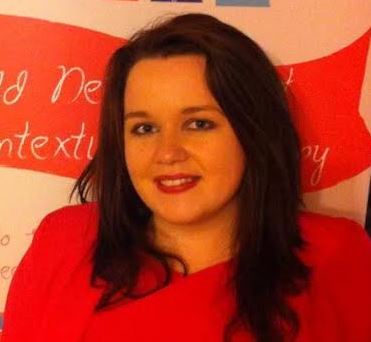 I have to admit, I cannot help but lace my work with the 'happy parent = happy child manifesto' which, simply put, means that the happier and healthier a parent is, the more likely the child will enjoy good health and happiness, too. There are numerous reasons for this, including the idea that when a parent is feeling good in themselves, they are more attuned to their children and more likely to notice when something is not right or when a specific need isn’t being met.
I have to admit, I cannot help but lace my work with the 'happy parent = happy child manifesto' which, simply put, means that the happier and healthier a parent is, the more likely the child will enjoy good health and happiness, too. There are numerous reasons for this, including the idea that when a parent is feeling good in themselves, they are more attuned to their children and more likely to notice when something is not right or when a specific need isn’t being met.
An interesting perspective on this same concept is that a child’s good health can often lead to a parent enjoying a healthier and happier life. We’ve certainly seen that childhood illness can have detrimental effects on a mother and fathers’ general well-being – guilt, depression and anger are all natural responses. However, how do parents feel when their child requires play therapy? This can be a tricky time for parent’s emotional wellbeing. A first, there can be some negative associations, but in general, I have seen massive positive outcomes in parents’ well-being during and after the course of therapy. These include:
Reduction in anxiety
Parents are worriers! It happens as soon as that little bundle of joy is placed in your arms, and there’s nothing you can do about it. Unfortunately, in Ireland, therapy is regarded as the last port of call and, oftentimes, when families come for therapy, they have been battling their problems for a while before they take the plunge. They arrive at the door exhausted and baffled. It’s truly fantastic to see how, throughout the course of therapeutic work, a family can evolve from being extremely apprehensive and unsure at the start to thankful and relaxed when it’s over. Good practitioners gently explain to parents how and why the issue escalated, which results in understanding and closure for many. Usually, therapists explain what needs to happen in order for the child to feel happy and fulfilled – and this makes parents feel happy and fulfilled every time.

Facilitates social support
One of the reasons play therapy with children reduces stress so much for their parents is that they realize there is a whole network of social support out there, specializing in exactly what they cannot figure out by themselves. And you’re not supposed to figure it all out by yourselves! If you were, there would be no need for psychologists to spend almost a decade in intensive training in university learning about this stuff. We've got this! Use us. The best part? Therapeutic work carried out with your family is confidential, non-judgmental and fully there for your needs. While the formal therapy is conducted with the child, good practitioners honestly engage with parents to ensure the best for your family. So, you don’t have to feel guilty or selfish for talking unabashedly about your children – that’s what we’re here for.
Empowering
Just knowing that someone is there, who cares and wants to help your child is a truly empowering gift. Although parents cannot know the answers to everything, pro-active parents seek out help and support for their children in order to bolster their own work. When clients are coming near to the end of their treatment, parents regularly report feeling high levels of satisfaction with themselves as a result of choosing this for their child. This is particularly important, because early intervention really is the key to avoiding long-term mental health difficulties, and it takes a brave Mum or Dad to admit they need outside help – but it does pay off in the end!
Enhances parent-child attachment
Usually, when children attend play therapy, there are difficulties within the parent-child relationship as a result of the issues the child is dealing with. Children often feel as though they cannot speak to their parents about what’s going on for them, and parents can take this in different ways, like feeling upset, angry, confused or embarrassed. However, aside from the therapeutic effects of enhanced psychological well-being and resilience, children also often feel supported by their parent who comes to therapy alongside them and checks in with them afterwards in the company of their trusted therapist. There is a real sense of teamwork, which the child appreciates, as well as the realization that they are worth all of this attention, time and effort. In turn, parents regularly tell me how overjoyed they are to have the child they know back again. Children and parents often come together after therapeutic work and rebuild relationships that had been somewhat strained. Communication is the key here – when a relationship has that, there is always a way.
Has your child recently finished a course of play therapy which changed how you felt as a parent? Feel free to leave your comments (or questions) below!





